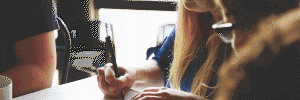At the meeting of the Board of directors of the Media Council for Self-Regulation, which was held on September 11, 2025, the members were informed about the upcoming activities of the Media Council, and the most significant of which is the organization of the upcoming AIPCE conference in Budva.
The results of the work of the MSS in the previous three months were also discussed, with an emphasis on the promotion of the study "Advantages and risks of the using the AI in the media sector", which was held on July 16 at the European House in Podgorica. The study was done with the support of UNESCO, and the working group consisted of the ombudsmen of daily Vijesti, weekly Monitor, daily Dan and the Media Council for Self-Regulation.
The board of directors was informed at the meeting that the conference entitled "Do Press Councils have a future?" will be held on September 25 and 26, 2025 in Montenegro, and that is the annual conference of the Alliance of Independent Press Councils of Europe (AIPCE). The members were informed that this year's gathering of European press and media councils, which is held every year in a different European country, is to be organized for the first time in one of the countries of the Western Balkans.
MSS Executive Secretary, Ranko Vujović, informed the attendees with the fact that the organization of this conference confirms the importance and work of MSS on the international scene, as well as the reputation it has among AIPCE members.
He said that representatives from thirty countries and from three continents will participate in it. The members of the Board of Director were presented the agenda and the speakers, as well as the topics that would be discussed at the panels and discussions.
He explained that the name of the conference itself "Do Press Councils have a future?" was chosen because of the technological changes that have been happening in the world, which local bodies have not fully followed.
He warned that, at the moment when social networks assume a leading role in informing citizens, self-regulation will remain on the sidelines, because it currently has no role in that segment. He also pointed to the fact that the traditional names of self-regulatory bodies in Europe "press councils" are outdated, and that they were created when newspapers were dominant.
Vujović recalled that at last year's meeting in London, he drew attention to the fact that the Alliance must initiate, lobby and push for the future role of self-regulation, because by shutting down print media, there is a great danger that self-regulation will remain in a limbo - first of all in Europe, but also in the world - and that it will be reduced to portals, since most of them are not dealing with radio and television.
Vujović said that the panels will also be an opportunity to discuss artificial intelligence, but also the media in times of war, and that there will be a guest representative from Ukraine who will also talk about whether self-regulation can function in such conditions. He also announced that he will try to make an effort to have a Palestinian journalist participate online in the conference, who will talk about how journalists in Gaza work under constant attacks from Israel. Guests from Georgia and Turkey will talk about their political situation, due to strong repression against journalists, and how they survive.
He said that on the second day, the assembly of AIPCE members will be held, closed to the public, where internal issues of the organization itself will be discussed. Vujović also introduced the members to the financial structure of the organization and expressed the hope that it will be closed within the stipulated time.










